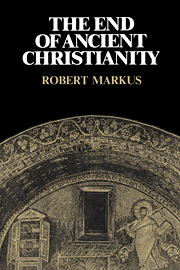1 - Introduction: ‘secularity’
Published online by Cambridge University Press: 05 June 2012
Summary
Very early in its history the Christian community was forced to ask itself what it was. Disagreement within the Apostolic community in Jerusalem about the importance of Jewish customs raised the agonising question: was being a Christian a special way of being a Jew – in which case the obligations of Jews would claim obedience from Christians – or was it something else? In the latter case there was a further question: how much, if any, of the Jewish Law was to apply, how much could be dismissed as of no religious importance, ultimately neutral?
How tightly was Christianity bound to particular cultural forms? The question has time and again agitated Christians, clergy, missionaries and their targets; it has furnished a rich theme to novelists and dramatists. What was essential to Christianity, and what was indifferent, merely linked with the particular form of the society in which it was embodied? The question has haunted Christian history. It was felt especially acutely at times of rapid or profound cultural change, or at moments of new encounters with foreign cultures: the transplantation of Christianity from a European into American, Asiatic, or more recently to African, milieus. Consider as an example the perplexities of a remarkable Dominican friar, Diego Durán, working in the later sixteenth century in Spanish America. Driven by the most authentic missionary zeal and fervent ardour to spread his faith, Durán was at the same time exceptional for his desire to understand the culture and the religion of the indigenous Indians.
- Type
- Chapter
- Information
- The End of Ancient Christianity , pp. 1 - 18Publisher: Cambridge University PressPrint publication year: 1991



